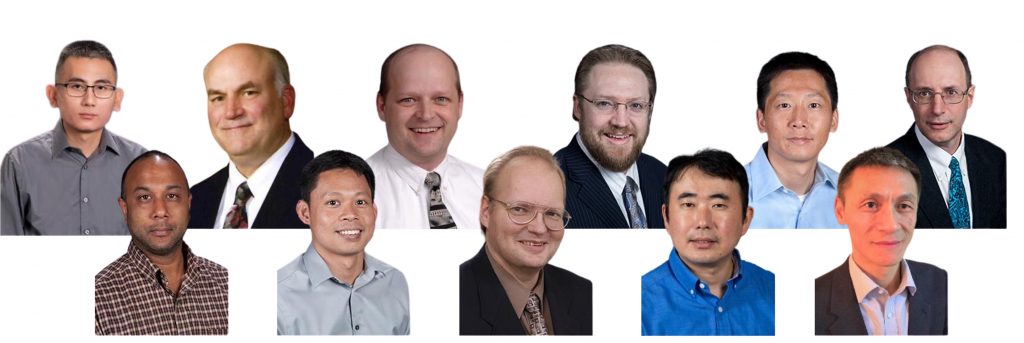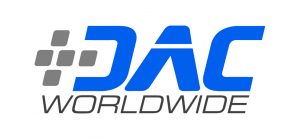Award Sponsor
Award Description
The William H. Corcoran Award is presented each year to the author(s) of the most outstanding article published in Chemical Engineering Education.
About William H. Corcoran
CEE Memorial Article: William H. Corcoran
Award Info
Description of William H. Corcoran Award on ASEE’s website
Award Recipients
2025 William H. Corcoran Award Recipient(s)
Chocolate Across The Curriculum and Outreach

Steve Sternberg
Lyndon Ramrattan
Richard Davis
Moe Benda
Victor Lai
Michael Rother
Guy Sander
Tsutomu Shimotori
Sam Toan
Zhihua Xu
Weiguo Xie
University Minnesota Duluth
Former Award Recipients
| Year | Awardee(s) | Awardee Institution(s) | CEE Article |
| 1986 | Richard M. Felder | North Carolina State University | The Generic Quiz: A Device to Stimulate Creativity and Higher-Level Thinking Skills Cheating-An Ounce of Prevention … or the Tragic Tale of the Dying Grandmother |
| 1987 | R. Byron Bird | University of Wisconsin, Madison | In Memoriam : Olaf Andreas Hougen |
| 1988 | C. Thomas Sciance | University of Texas, Austin | Chemical Engineering in the Future |
| 1989 | Robert L. Kabel | Pennsylvania State University | Instruction in Scaleup |
| 1990 | E. Dendy Sloan | Colorado School of Mines | Extrinsic Versus Intrinsic Motivation in Faculty Development |
| 1991 | John M. Prausnitz Davor P. Sutija | University of California, Berkeley | Chemical Engineering in the Spectrum of Knowledge |
| 1992 | Robert G. Squires G. V. Reklaitis N. C. Yeh J. F. Mosey I. A. Karimi P. K. Anderson | Purdue University | Purdue-Industry Computer Simulation Modules: The Amoco Resid Hydrotreater Process |
| 1993 | Noel de Nevers | University of Utah | “Product in the Way” Processes |
| 1994 | Donald R. Woods Stuart Churchill Richard Felder John O’Connell R. Byron Bird H. Scott Fogler | McMaster University University of Pennsylvania North Carolina State University University of Virginia U. Wisconsin, Madison University of Michigan | |
| 1995 | Michael M. Abbot M. V. Ariyapadi N. Balsara S. Dasgupta J. S. Furno P. Futerko D. P. Gapinski T. A. Grocela R. D. Kaminsky S. G. Karlsruther E. W. Kiewra A. S. Narayan K. K. Nass J. P. O’Connell C. J. Parks G. S. Roth D. F. Rogowski M. B. Sarsfield K. M. Smith M. Sujanani J. J. Tee N. Tzouvaras | Rennselaer Polytechnic Institute | A Field Guide to the Excess Functions |
| 1996 | David F. Ollis | North Carolina State University | The Research Proposition |
| 1997 | Edwin Lightfoot | University of Wisconsin, Madison | Evolution for Chemical Engineers |
| 1998 | James. M. Haile | Clemson University | Toward Technical Understanding: Part l. Brain Structure and Function Toward Technical Understanding: Part 2. Elementary Levels |
| 1999 | John Prausnitz | University of California, Berkeley | Chemical Engineering and the Other Humanities |
| 2000 | Ronald Miller Barbara Olds | Colorado School of Mines | Using Portfolios to Assess a Chemical Engineering Program |
| 2001 | David DiBiasio William Clark Anthony Dixon | Worcester Polytechnic Institute | A Project-Based, Spiral Curriculum for Introductory Courses in Chemical Engineering: Part 2. Implementation |
| 2002 | Phillip R. Westmoreland | University of Massachusetts | Chemistry and Life Sciences in a New Vision of ChE |
| 2003 | Duncan M. Fraser Jennifer M. Case | University of Cape Town, South Africa | The Challenges of Promoting and Assessing for Conceptual Understanding in Chemical Engineering |
| 2004 | David L. Silverstein | University of Kentucky | Increasing Time Spent on Course Objectives when Using Computer Programming to Teach Numerical Methods |
| 2005 | James A. Newell Kevin D. Dahm Roberta Harvey Heidi L. Newell | Rowan University | Developing Metacognitive Engineering Teams |
| 2006 | Joseph J. Biernacki | Tennessee Technological University | A Quantitative Course-Level Strategy for Using Outcomes-Based Assessment to Guide Continuous Improvement |
| 2007 | Richard Turton Joseph Shaeiwitz | West Virginia University | Design Projects of the Future |
| 2008 | Christopher Long Michael Matthews Nancy Thompson | University of South Carolina | Fostering an Active Learning Environment for Undergraduates: Peer-to-Peer Interactions in a Research Group |
| 2009 | Neil S. Forbes | University of Massachusetts | A Module to Foster Engineering Creativity: an Interpolative Design Problem and an Extrapolative Research Project |
| 2010 | Heather Sheardown Donald Woods | McMaster University | Ideas for Creating and Overcoming Student Silences |
| 2011 | David L. Silverstein Gifty Osei-Prempeh | University of Kentucky West Virginia University Institute of Technology | Making A Chemical Process Control Course an Inductive and Deductive Learning Experience |
| 2012 | Margot Vigeant Michael Prince Katharyn Nottis | Bucknell University | Fundamental Research in Engineering Education — Development of Concept Questions and Inquiry-Based Activities in Thermodynamics and Heat Transfer: An Example for Equilibrium vs. Steady-State |
| 2013 | Donald R. Woods | McMaster University | PBL: An Evaluation of the Effectiveness of Authentic Problem-Based Learning (aPBL) |
| 2014 | Michael J. Prince Maura J. Borrego Charles R. Henderson Stephanie L. Cutler Jeffrey E. Froyd | Bucknell University Virginia Tech Western Michigan University Virginia Tech Texas A&M University | Use of Research-Based Instructional Strategies in Core Chemical Engineering Courses |
| 2015 | David D. Shaw Leonard F. Pease III | University of Utah | Efficient Grading |
| 2016 | Randy D. Weinstein | Villanova University | Improved Performance via the Inverted Classroom |
| 2017 | Michael Prince Margot Vigeant Katharyn Nottis | Bucknell University | Repairing Student Misconceptions in Heat Transfer Using Inquiry-Based Activities |
| 2018 | Polly Piergiovanni | Lafayette College | Students Learn Without Lectures: Scaffolded Problem-Based Learning in an Applied Fluid Flow and Heat Transfer Course |
| 2019 | Katrina Mÿ Quyên Lê Anthony Butterfield Kerry Kelly Pierre-Emmanuel Gaillardon Kyle Tingey Thomas Becnel | University of Utah University of Utah, Velentium | Building Air Quality Sensors & Inspiring Citizen Scientists |
| 2020 | Jamie Gomez Vanessa Svihla | University of New Mexico | Building Individual Accountability though Consensus |
| 2021 | Cheryl Bodnar Emily Dringenberg Brittany Butler Daniel Burkey Daniel Anastasio Matthew Cooper | Rowan University Ohio State University Rowan University University of Connecticut Rose Hulman North Carolina State University | Revealing the Decision-Making Processes of Chemical Engineering Students in Process Safety Contexts |
| 2022 | Stephanie Farrell Allison Godwin Donna M. Riley | Rowan University Purdue University | A Sociocultural Learning Framework for Inclusive Pedagogy in Engineering |
| 2023 | Matthew Liberatore Daniel Lepek Laura Ford Tracy Carter Jennifer Pascal Monica Lamm Christi Patton Luks David Silverstein Ashlee Ford Versypt Stephanie Velegol Troy Vogel Neha Raikar Matt Kipper Christy Wheeler West | University of Toledo The Cooper Union University of Tulsa Northeastern University University of Connecticut Iowa State University Missouri S&T University of Kentucky University at Buffalo, The State University of New York Penn State University University of Notre Dame University of Maryland, B.C. Colorado State University University of South Alabama | AIChE Virtual Communities of Practice – Supporting Faculty During the COVID-19 Pandemic |
| 2024 | Christopher Chen Scott Banta | Columbia University | Case-Based Learning in Material & Energy Balances to Help Students Practice the Transferability of Chemical Engineering Problem Solving |
| 2025 | Steve Sternberg Lyndon Ramrattan Richard Davis Moe Benda Victor Lai Michael Rother Guy Sander Tsutomu Shimotori Sam Toan Zhihua Xu Weiguo Xie | University Minnesota Duluth | Chocolate Across The Curriculum and Outreach |


